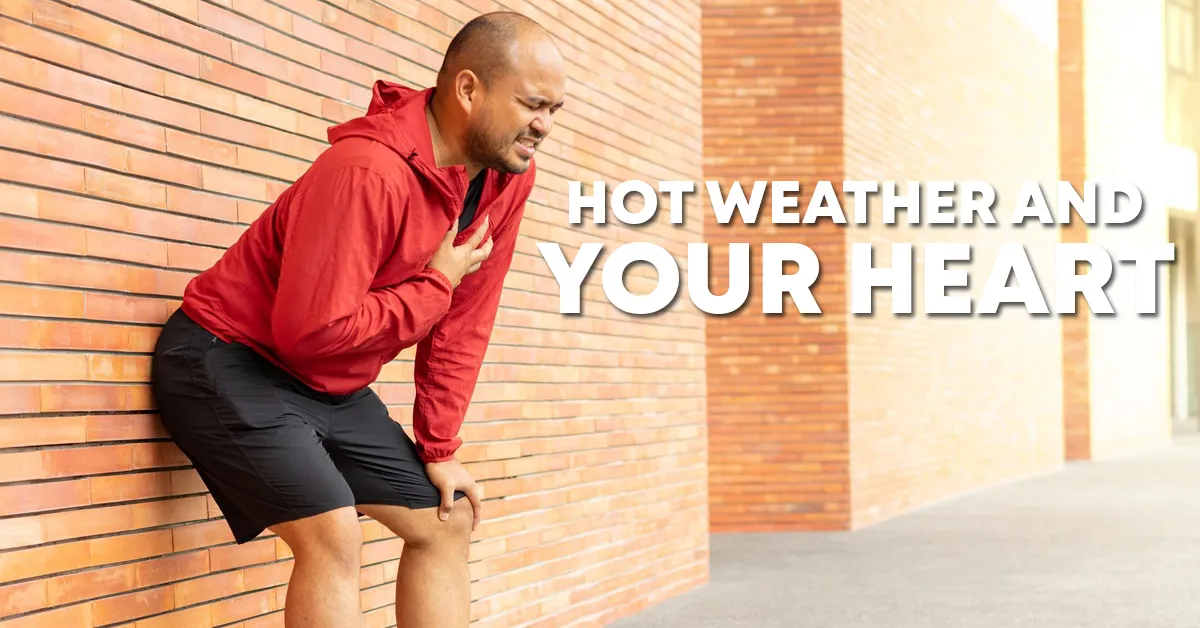It is not uncommon to have some nearly 100 degree days each summer in Minnesota. While exercising on a hot day may theoretically help you sweat more and increase your calorie-burning rate, it can be dangerous for your heart. Use caution on hot days and listen to what your body is telling you so that you can keep yourself safe!
How does your heart react to hot weather?
Think about the following math…
For every degree, your body’s internal temperature increases, your heart has to beat 10 more beats per minute.
That does not even account for the already elevated heart rate you will have if you are exercising. Of course, a one-degree increase in outside temperature does not equal a one-degree increase in body temperature, but it does have an effect.
How fast does my internal body temperature increase?
This is heavily dependent on just how hot it is outside. However, heat radiates away from hot areas outward to cooler areas. This means as long as your body remains hotter than the air around you, then you are actively making an effort to release your body heat into the air.
When the air temperature approaches 100 degrees, the body’s temperature (98.6 on average at normal) is then rivaling the air temperature, and as a result, the heat is increasingly trapped in your body.
How does your body manage extra heat?
Naturally, your body makes you sweat as a way to cool down. However, even sweating can further strain your overall cardiovascular system. Sodium, potassium, and other crucial minerals are lost in your sweat (this is why many sports drinks are high in sodium). These minerals are critical to keeping your muscles moving without cramping, as well as transmitting information to your nerves, and managing your body’s fluids.
Individuals with heart disease may be on medications that are already removing certain fluids from the body, so excessive sweating can prove to be even more dangerous.
What can I do to protect my heart in warm weather?
If the temperature is over 100 degrees, many local youth sports leagues cancel games as a precaution. This might be a good rule of thumb for adults as well depending on how rigorous the activity is.
Keep these things in mind on hot days:
- Slow down and take breaks as necessary
- Increase your water consumption to prevent yourself from becoming dehydrated
- Choose appropriate clothing that is comfortable and sufficient for the temperature
- Frequently go to cool areas that are shaded or air conditioned to help in normalizing your body temperature


